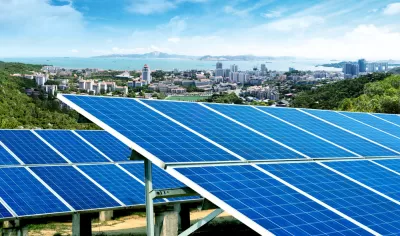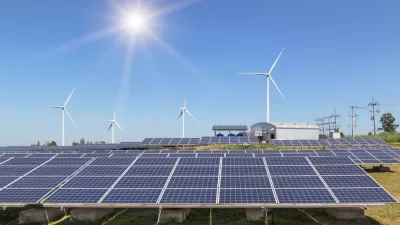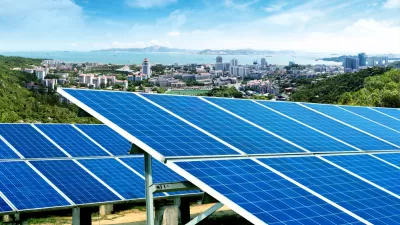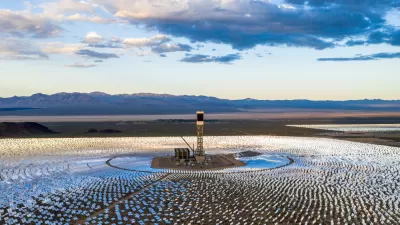California is setting records for the amount of solar energy it can’t use, but this cushion might be a good thing: it means the state won’t need to depend as heavily on fossil fuels as a stopgap.

The state of California has increased its solar energy production, and now it often has more than it can use. "The state’s fleet of solar farms and rooftop panels frequently generate more electricity than Californians use during the middle of the day — a phenomenon that has sent lawmakers and some climate advocates scrambling to find ways to save the extra sunlight rather than let it go to waste," Sammy Roth reports for the Los Angeles Times.
While this may seem wasteful, a study from the academic journal, Solar Energy, suggests it might actually be prudent to build oversupply into the system. "Solar power has gotten so inexpensive that overbuilding it will probably be the cheapest way to keep the lights on during cloudy or overcast days — cheaper than relying entirely on batteries," Roth explains. Maintaining an oversupply of power is nothing new for utilities, who always need to maintain some cushion. Generating that cushion with solar energy, is a new practice for utilities.
FULL STORY: California has too much solar power. That might be good for ratepayers

Alabama: Trump Terminates Settlements for Black Communities Harmed By Raw Sewage
Trump deemed the landmark civil rights agreement “illegal DEI and environmental justice policy.”

Study: Maui’s Plan to Convert Vacation Rentals to Long-Term Housing Could Cause Nearly $1 Billion Economic Loss
The plan would reduce visitor accommodation by 25% resulting in 1,900 jobs lost.

Planetizen Federal Action Tracker
A weekly monitor of how Trump’s orders and actions are impacting planners and planning in America.

Wind Energy on the Rise Despite Federal Policy Reversal
The Trump administration is revoking federal support for renewable energy, but demand for new projects continues unabated.

Passengers Flock to Caltrain After Electrification
The new electric trains are running faster and more reliably, leading to strong ridership growth on the Bay Area rail system.

Texas Churches Rally Behind ‘Yes in God’s Back Yard’ Legislation
Religious leaders want the state to reduce zoning regulations to streamline leasing church-owned land to housing developers.
Urban Design for Planners 1: Software Tools
This six-course series explores essential urban design concepts using open source software and equips planners with the tools they need to participate fully in the urban design process.
Planning for Universal Design
Learn the tools for implementing Universal Design in planning regulations.
Caltrans
Smith Gee Studio
Institute for Housing and Urban Development Studies (IHS)
City of Grandview
Harvard GSD Executive Education
Toledo-Lucas County Plan Commissions
Salt Lake City
NYU Wagner Graduate School of Public Service





























